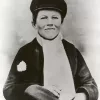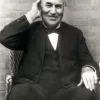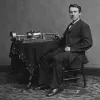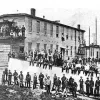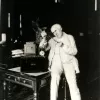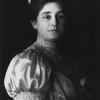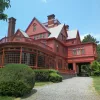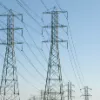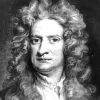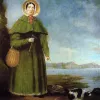Important update from TheSchoolRun
For the past 13 years, TheSchoolRun has been run by a small team of mums working from home, dedicated to providing quality educational resources to primary school parents. Unfortunately, rising supplier costs and falling revenue have made it impossible for us to continue operating, and we’ve had to make the difficult decision to close. The good news: We’ve arranged for another educational provider to take over many of our resources. These will be hosted on a new portal, where the content will be updated and expanded to support your child’s learning.
What this means for subscribers:
- Your subscription is still active, and for now, you can keep using the website as normal — just log in with your usual details to access all our articles and resources*.
- In a few months, all resources will move to the new portal. You’ll continue to have access there until your subscription ends. We’ll send you full details nearer the time.
- As a thank you for your support, we’ll also be sending you 16 primary school eBooks (worth £108.84) to download and keep.
A few changes to be aware of:
- The Learning Journey weekly email has ended, but your child’s plan will still be updated on your dashboard each Monday. Just log in to see the recommended worksheets.
- The 11+ weekly emails have now ended. We sent you all the remaining emails in the series at the end of March — please check your inbox (and spam folder) if you haven’t seen them. You can also follow the full programme here: 11+ Learning Journey.
If you have any questions, please contact us at [email protected]. Thank you for being part of our journey it’s been a privilege to support your family’s learning.
*If you need to reset your password, it will still work as usual. Please check your spam folder if the reset email doesn’t appear in your inbox.
Thomas Edison
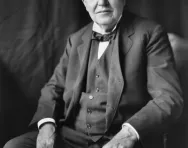
Thomas Alva Edison was a famous American inventor.
He is best known for inventing ‘domestic’ lightbulbs to go in houses, and the electric power system that allows them to work. He came up with over 1000 successful inventions in his lifetime.
Top 10 facts
- Edison acquired 1093 patents (something that gives someone the ownership of an invention so that no one else can make it and sell it) for his inventions – this is the record number of patents that one person has ever had.
- Edison’s best known inventions are the electric light system, the phonograph (a machine that records and replays sound) and motion pictures (movies).
- Edison wasn’t a great pupil school and only lasted three months! His mum taught him at home.
- Edison was known by his middle name, Al, as a boy, rather than being called Thomas.
- Edison lost most of his hearing when he was 12 years old. He wasn’t completely deaf, but said that he liked being able to not hear as it meant he could concentrate on his experiments and inventions.
- When he was 15 years old, Edison started printing a newspaper on board the train he then worked on.
- Edison would often spend 18 hours a day working – and about 4 hours sleeping!
- When he was a telegraph operator, Edison often asked for night shifts so that he could spend some of his time sneaking in some experiments while he was working.
- At one point in his life, Edison was called ‘The Wizard of Menlo Park’. Menlo Park was the name of the village one of his earlier factories was located in.
- In 1881 Edison received the French Legion of Honour for his electric power system.
- 1847Thomas Alva Edison is born in Milan, Ohio
- C 1855Edison briefly attends school
- C 1859Edison becomes deaf (though not fully)

- 1862Edison is shown how to use telegraphs as a thank you by the father of a small boy he saved from being hit by a train
- 1867Edison patents his first invention - the electrical vote recorder, but it doesn’t sell
- 1871Edison marries Mary Stilwell
- 1876Edison opens his laboratory at Menlo Park in New Jersey

- 1877Edison invents his first phonograph

- 1879Edison makes a light bulb that lasts for more than thirteen hours.

- 1884Mary Stilwell Edison dies
- 1886Edison marries Mina Miller

- 1887Edison opens his new laboratory at West Orange

- 1894Edison’s first public motion picture is shown
- 1915Edison works with the US Navy to invent weapons
- 192550% of American households now have electric power
- 1928Edison is awarded a Congressional gold medal
- 1931Edison dies on 18th October aged 84
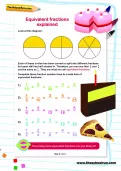
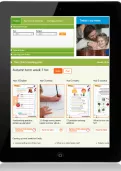
Boost Your Child's Maths & English Skills!
- Let us create a tailored plan for your child
- English & maths resources added each week to your plan
- Watch your child leap ahead in their learning & confidence
Did you know?
- Edison started up a business with the aim of inventing things. He employed people to work for him to develop his ideas.
- Thomas Edison didn’t invent the first lightbulb – that had happened over 50 years before he was doing his inventing. He did, however, create a ‘gentle’ light in a bulb that could burn for a good amount of time, making it practical and usable in a domestic home. This was called an incandescent lightbulb.
- Edison and his ‘inventors’ created and developed a way of sending electricity into homes so that domestic lightbulbs could be used. This became known as the electric power system.
- Edison said lots of wise things that people often refer back to. We call these quotes. Scroll down the page to read some of Edison's most famouse quotes.
- He called his staff ‘muckers’ and got them to work in teams so that they could share ideas and work faster on the development of his inventions.
- Edison famously said, "Genius is one per cent inspiration, ninety-nine per cent perspiration." In other words, it's not enough to have a great idea – you have to work incredibly hard to develop it, too!
Look through the gallery below and see if you can spot the following:
- Edison as a boy
- Photograph of Thomas Edison
- Edison and his phonograph in 1877
- The Menlo Park laboratory
- Edison’s motion picture camera
- Edison’s second wife, Mina
- Edison's home in New Jersey
Gallery
About
Edison was born in Milan, Ohio on February 11, 1847. When he went to school his teachers didn’t think he was very good at school work – his mum wasn’t too pleased with the teachers for suggesting this so she taught him at home. He was always fascinated by experimentation and built his own laboratory in the basement of his family’s house where he would try mixing chemicals and making things.
Edison worked on trains when he was young, selling fruit and papers. He often carried out experiments when he was on the trains as well as setting up his own printing press and newspaper, but once set fire to the carriage and was asked to leave! When Edison was 15 he saved a three year old boy from being run over by a train. The boy’s dad was so grateful to Edison that he taught him how to use the telegraph communication system. This then led to Edison getting a job as a telegraph operator.
Edison spent a lot of his time at work and at home experimenting with ideas for inventions. The first invention that he patented was designed to count votes, however, nobody wanted it and so he decided that any future inventions needed to be things that people actually wanted to buy!
He set up a company in the American village of Menlo Park, which employed people to help him to develop his inventions – they worked in teams to share ideas and to work quicker. His inventions were also made (or manufactured) in his factory, so that they could be sold directly by him.
Edison was keen to develop a lightbulb that would stay lit for a long period of time and that would have a gentle light. He hoped it could be used in homes. Once he had developed a domestic ‘incandescent’ lightbulb he knew that homes would need electricity to power them, so he also worked on developing an electrical power distribution system. His first electricity distribution system was opened in 1887 in New York, America.
In 1887, Edison opened a new laboratory in a place called West Orange, where he continued to develop his ideas for inventions. Throughout his life Edison developed and patented over 1000 inventions – the most anyone has ever managed. His most important inventions apart from the incandescent lightbulb were the phonograph which records and replays sound, and motion pictures – the recording and replaying of images.
Edison lived until he was 84 years old.
Thomas Edison: famous quotes
- "Genius is one per cent inspiration, ninety-nine per cent perspiration."
- “A genius is often merely a talented person who has done all of his or her homework.”
- “Opportunity is missed by most people because it is dressed in overalls and looks like work.”
- “Unfortunately, there seems to be far more opportunity out there than ability… We should remember that good fortune often happens when opportunity meets with preparation.”
- “If we all did the things we are really capable of doing, we would literally astound ourselves…”
- “I never did a day’s work in my life, it was all fun.”
- “The man who doesn’t make up his mind to cultivate the habit of thinking misses the greatest pleasure in life.”
- “The world owes nothing to any man, but every man owes something to the world.”
Words to know
Filament (wire) – a very thin piece of wire.
Incandescent bulb – a lightbulb that contains a wire filament which glows when it reaches a certain heat.
Invention – something new and unique that someone comes up with the idea for.
Motion picture camera – a machine that records and replays images.
Patent – a license that gives someone the ownership of an invention so that no one else can make it and sell it.
Phonograph – a machine that records and replays sound.
Related Videos
Just for fun...
- Make your own motion picture (movie) using a camera, phone or tablet
- Watch a Horrible Histories video, Thomas Edison invents 'hello'!
- Record your own voice using a camera, phone or tablet
- Have a go at a quiz about Thomas Edison
- Would Thomas Edison have chosen you as one of his employees? Complete the questionnaire he used to pick his 'muckers' and find out!
Find out more
- Take a look at this detailed biography of Edison
- Read about Edison's most famous inventions
- Explore all of Edison’s patents
- Find out more about the gifted men who worked for Edison and helped develop his inventions
- Listen to Edison's first sound recordings
Thomas Edison books for children
See for yourself
- Visit The Science Museum in London to find out more about electricity and light and other Edison inventions – you can see lots of his inventions online!
- Watch a short BBC film about the lightbulb
- Listen to a biography of Edison
